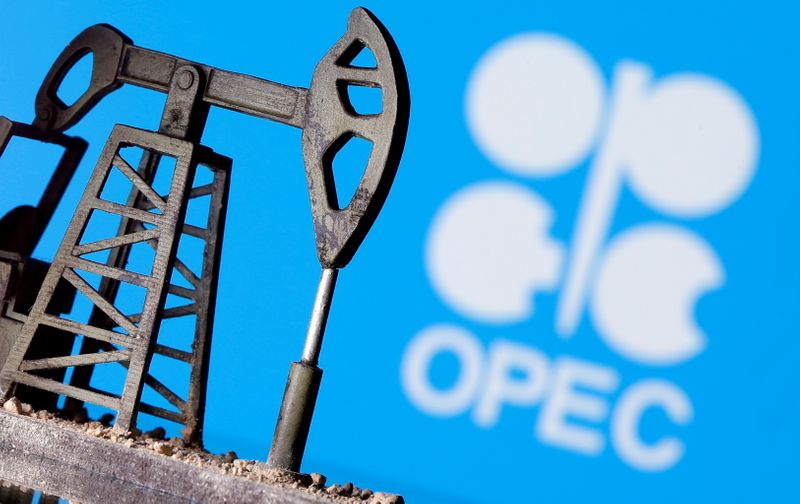By Alex Lawler
LONDON (Reuters) - The increase in OPEC's oil output in October fell short of the rise planned under a deal with allies, a Reuters survey found on Monday, as involuntary outages in some smaller producers offset higher supplies from Saudi Arabia and Iraq.
The Organization of the Petroleum Exporting Countries (OPEC) pumped 27.50 million barrels per day (bpd) in October, the survey found, a rise of 190,000 bpd from the previous month but below the 254,000 increase permitted under the supply deal.
OPEC states and their allies, a grouping known as OPEC+, are relaxing output cuts made in 2020 as demand recovers from the coronavirus pandemic, although some members are not delivering the full boosts promised due to a lack of capacity.
The OPEC+ alliance is also wary of pumping too much oil in case of renewed setbacks in the battle against COVID-19.
"OPEC+ will likely stay behind the demand curve, rather than risk jumping ahead and getting burned," said Rystad Energy analyst Louise Dickson.
The supply restraint has helped support oil prices, which are trading near $85 a barrel and close to a three-year high, prompting the United States and other consumers to urge producers to supply more crude.
The OPEC+ agreement allowed for a 400,000 bpd production increase in October from all members, of which about 254,000 bpd is shared by the 10 OPEC members covered by the deal, OPEC figures seen by Reuters show.
With output undershooting the planned increase last month, OPEC's compliance with its pledged cuts increased to 118% in October the survey found, from 114% a month earlier.
OPEC+ meets on Thursday to review its policy and is expected to reconfirm its plans for monthly increases.
SAUDI AND IRAQI BOOST
The biggest rises in October came from OPEC's top two producers, Saudi Arabia and Iraq, which both boosted output largely as promised according to the agreement.
Kuwait, the United Arab Emirates and Algeria also made increases as called for by their higher October quotas. Angolan exports bucked their declining trend and rose in October.
Output declined or did not increase in Republic of Congo, Equatorial Guinea and Gabon, the survey found, owing to a lack of capacity to produce more.
The biggest output decline - 70,000 bpd - was in Nigeria where output was disrupted after a recovery in September.
A Royal Dutch Shell (LON:RDSa) venture in Nigeria declared force majeure on loadings of Bonny Light crude after a pipeline shut down.
The second largest decline was in Libya, one of the countries exempt from OPEC supply curbs, due to a pipeline leak.
Output in Iran, which has raised exports since the fourth quarter despite U.S. sanctions, showed little change in October. Talks to revive its 2015 nuclear deal with world powers, which would allow a larger export recovery, are set to resume.

Venezuelan output increased slightly, the survey found, helped by the arrival of Iranian condensate to help Caracas convert its extra heavy oil into exportable crude.
The Reuters survey aims to track supply to the market and is based on shipping data provided by external sources, Refinitiv Eikon flows data, information from tanker trackers such as Petro-Logistics and Kpler, as well as information provided by sources at oil companies, OPEC and consultants.